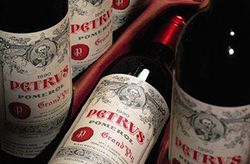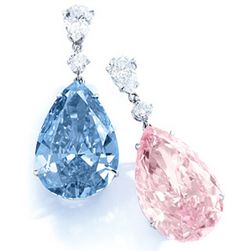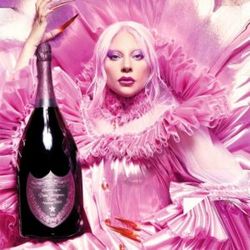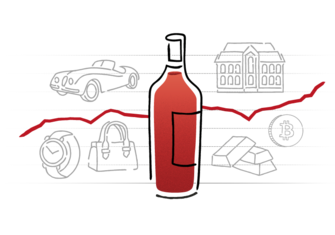Investors are discovering the benefits of assets that reward emotional engagement. A survey reveals why investors and advisors need to know more.
How do investors view passion assets?
- 68% of investors surveyed consider passion assets to be more secure than traditional asset classes.
- 82% believe that diversifying a portfolio with passion assets is a ‘good bet for the future’.
- 90% of High Net Worth Investors (HNWI) surveyed support this view.
- 47% would consider borrowing against their passion assets.
- 32% are already leveraging their passion assets.
Source: Fladgate LLP Report – Unlocking The World of Passion Assets
What is a ‘Passion Asset’?
Passion assets are defined as investments or luxury collectibles that are perceived to old personal and / or emotional value, not just financial. They are also regarded as being low risk, whilst offering the potential for higher returns and diversification. There’s a lot to love!
The most popular investable passion asset classes are art, classic and super cars, coins, coloured diamonds, fine wine, handbags, jewellery, limited edition watches and whisky. Most rare, luxury collectibles are sold by private sale, via expert agents or at auction. Rarity drives value in passion assets and determining a price for extremely rare, one-of-a-kind artworks or limited special editions cars, watches and books, can be challenging. Auction dynamics can often push prices to new levels, equally they can miss the mark.
 The advent of the internet and digital platforms has vastly improved visibility on some specialist sales and auction events, but for many, the costs involved with investing and owning passion assets, including ongoing maintenance, can be prohibitive.
The advent of the internet and digital platforms has vastly improved visibility on some specialist sales and auction events, but for many, the costs involved with investing and owning passion assets, including ongoing maintenance, can be prohibitive.
Fine wine’s more established secondary market with a ‘stock exchange’ function in Liv-ex.com, delivering price transparency, data analysis and liquidity through more than 600 global merchants and wine investment specialists, provides investors with access and confidence. Furthermore, fine wine is normally a less expensive option for investors to enter the luxury asset market.
Most expensive auction ‘Passion Purchases’ in 2023
| Asset class | Item | Price in USD |
|---|---|---|
| Art | Picasso, ‘Femme à la Montre’, Sotheby’s, November 2023 | $139M |
| Car | Ferrari, 1963 330 LM/250 GTO, Scaglietti, Sotheby’s, November 2023 | $51.7M |
| Jewellery | Light of Peace Diamond, Christies New York, June 2023 | $13.635M |
| Watch | Patek-Philippe Ref 96 Quantieme Lune, Phillips Hong Kong | $6.6M |
| Wine | The private cellar of Dr A Botenga, Christies across three auctions, ending in November 2023 | $7.7M |
| Whisky | The Macallan Adami 1926 Single Malt, Sotheby’s London, November 2023 | $2.7M |
| Handbags | Mouawad 1001 Nights Diamond purse, Christies 2023 | $3.8M |
Growing interest in Passion Assets
A survey undertaken by Fladgate LLP in 2023 canvassed the opinions of 320 investors and 171 UK-based professional advisors whose organisations managed more than £1trillion in assets, about the growing use of passion assets in the current economic climate.
- The research found that over 3 in 5 people asked think passion assets provide more financial security than other investments due to perceived lower risk and the performance diversification they offer.
- Investors expect higher levels of return from them over the next five years.
- Almost 38% of investors asked are expecting to increase their investment in passion assets over the next five years.
- Those involved in making investment decisions for a family company or trust expect to increase their holdings in passion assets.
Investors leveraging passion assets to grow portfolios
Some investors are borrowing against the inherent value of their passion asset without having to surrender the original investment. There appears to be a growing appetite for this phenomenon, especially for investors with larger portfolios.
 Fladgate’s research showed that 47% of the investors surveyed would consider borrowing against their passion asset to access further capital to expand their portfolios. Furthermore, 32% of those canvassed had already. The ability for these assets to be a store of accessible value is a relatively new development and is starting to drive new interest in the market.
Fladgate’s research showed that 47% of the investors surveyed would consider borrowing against their passion asset to access further capital to expand their portfolios. Furthermore, 32% of those canvassed had already. The ability for these assets to be a store of accessible value is a relatively new development and is starting to drive new interest in the market.
“We foresee an increase in the number of investors leveraging their passion assets to finance other investment opportunities over the next five years.”
Ella Leonard, Partner and Head of Regulatory Practice, Fladgate LLP.
How different investor types view Passion Assets
 Do you need to be a passionate collector or an expert to invest in passion assets? Of course, having an interest in an investment beyond its financial performance helps understand the market, asset value and opportunities.
Do you need to be a passionate collector or an expert to invest in passion assets? Of course, having an interest in an investment beyond its financial performance helps understand the market, asset value and opportunities.
Of the investors surveyed by Fladgate, 80% stated they ‘were passionate’ about the passion assets they were invested in, however it’s not essential to ‘love’ the asset. Being guided by an expert on the specific market you’re looking to invest in, will ensure you optimise your investment potential, grow your knowledge and the returns you can achieve.
Fladgate’s survey found that an investor’s level of wealth is likely to influence attitude to passion asset investing.
- Equity investors with portfolios valued at under £250,000 are more motivated by returns and diversification potential than passion.
- HNWIs with portfolios of £250,000 to £999,999 have marginally more emphasis on their interest in the passion asset than potential returns and ownership of these assets is very important to them
- UHNWIs with portfolios valued at more than £1milion are more likely to prioritise their interest in the asset than future potential returns.
How do professional advisors view passion assets?
Professional advisors are often the key to a market for investors. Research shows that investors want their advisors to have experience and be able to offer insight to passion assets. The lack of knowledge about passion assets is a primary reason some financial advisors do not get involved.
“UK investors are keen to discover more about the potential benefits of investing in passion assets; 96% of those we asked said they would like to understand more.”
 “59% of investors have never had an advisor-initiated conversation about investing in passion assets.”
“59% of investors have never had an advisor-initiated conversation about investing in passion assets.”
Fladgate surveyed 171 advisors who included wealth managers, investment and mutual fund managers, insurance funds, tax advisors and those managing family trusts. The research revealed the following information:
Average client portfolio:
- 31% traditional investments (equities, bonds)
- 26% private real estate
- 24% other alternatives
- 19% passion assets
Advisors’ view on investing in passion assets:
- 80% of advisors surveyed believe that passionate assets are becoming more popular.
- 71% are interested in promoting passion assets as an investment opportunity.
- 74% believe regulatory support is needed for passion asset investing.
- 61% believe that their clients won’t take them seriously if they suggest investment in passion assets.
- 69% agree that “passion assets are a useful way to supplement an investment portfolio in the current economic environment.
There are evidently many opportunities for advisors to engage with investors to deliver added value and enhance relationships with passion investments.
Key factors are:
- Investors are interested and want to know more.
- Costs and security are important elements to discuss.
- Investors need to understand the risks and benefits.
- Working with experts in each asset field will enhance the advisor / client relationship, broaden understanding, secure the optimum assets for the investor and deliver stronger returns.
Passion assets - Investor information
As with all investments, information is key. Property investment specialist, Knight Frank, publishes an annual Wealth Report providing insight into the investment habits of High Net Worth and Ultra High Net Worth Investors. The report's is primarily on real estate, but it also appraises the performance of ten luxury asset classes.
Their 2023 edition established that passion assets returned an average 16% in 2022 with whisky, cars and wine leading the 10-year ranking. The 2024 Knight Frank Wealth Report is due out in March and we will comment on that in due course.
Our view on investing in passion assets
As wine investment experts, we are here to help investors understand and enjoy the benefits of one of the top performing passion assets. Fine wine is one of the most accessible with entry into the market as low as £1,500 for some investment-grade Champagne.
 The secondary market in fine wine also delivers greater price transparency and liquidity than most other passion assets as Liv-ex.com provides a ‘stock exchange’ function and investor information utilised by fund managers and media platforms such as Bloomberg. The market is not reliant on auction sales and is becoming increasingly efficient.
The secondary market in fine wine also delivers greater price transparency and liquidity than most other passion assets as Liv-ex.com provides a ‘stock exchange’ function and investor information utilised by fund managers and media platforms such as Bloomberg. The market is not reliant on auction sales and is becoming increasingly efficient.
For more information on adding ‘passion asset’ fine wine to your investment portfolio, speak to a member of our expert team on 0203 384 2262 and see our Guide to Investing in Fine Wine.

